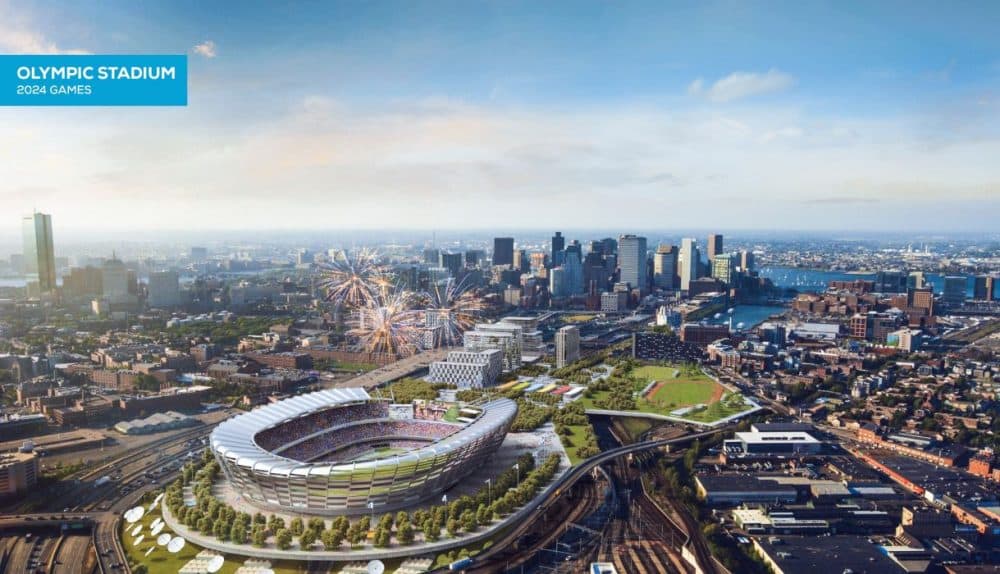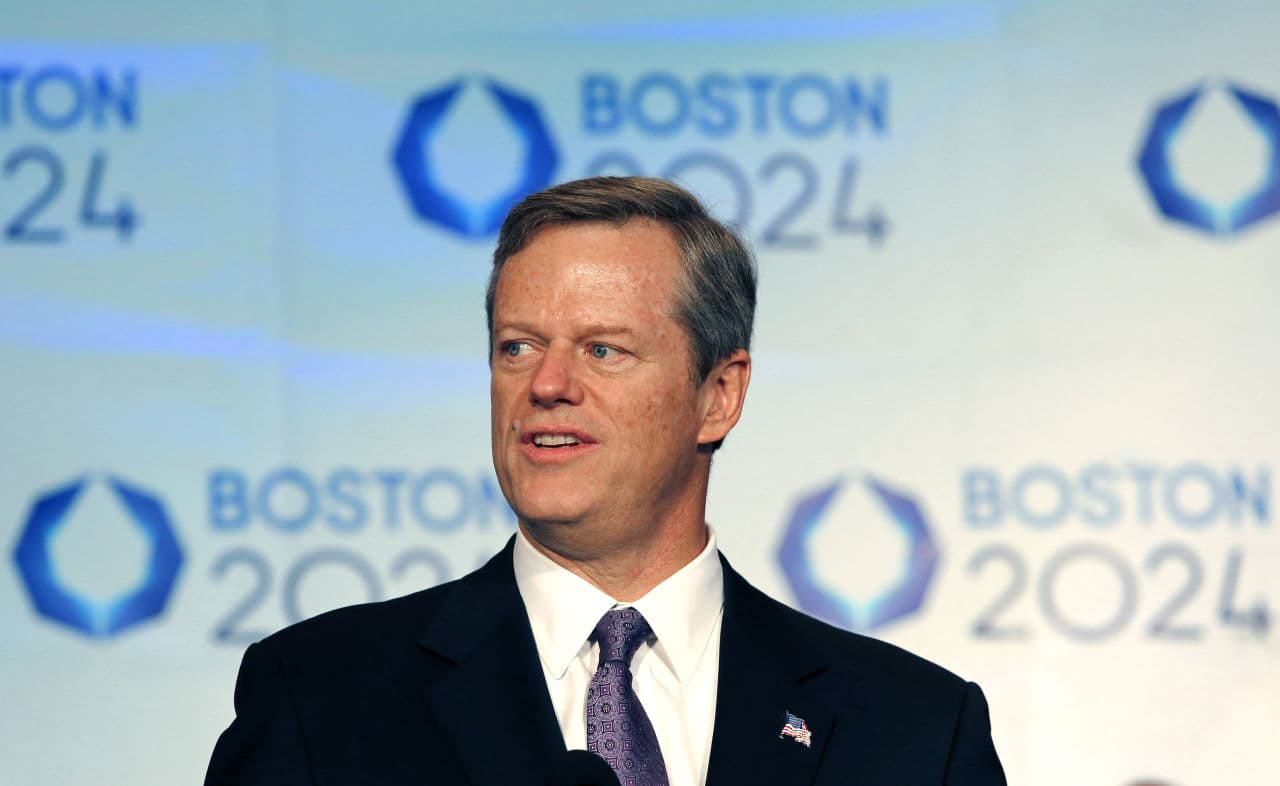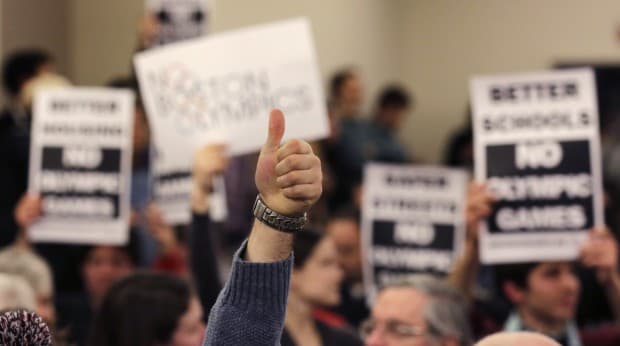Advertisement
Some Upset, Others Relieved: Bostonians Wake Up To Dead Olympic Dream

Bostonians are waking up to a dead Olympic dream. The U.S. Olympic Committee and organizers Boston 2024 on Monday ended the city’s bid for the 2024 Summer Games. The culprit? Low public support.
Some say Boston’s rejection shows other cities that the Olympics are not worth it. But others say it opens the door for other cities to step in.
A Mix Of Reactions To Bid's End
At IBEW Local 103 on Dorchester Avenue, electrician Chris Fisher said Monday he heard the news from his union rep.
"It’s really upsetting! You know, I really wish we could have made Boston, you know, the new Olympics," Fisher said.
The new Olympics would have meant a new Olympic Stadium just up the street, with thousands of construction jobs. Dorchester Avenue was supposed to have become the new Olympic Boulevard. An athlete village nearby at Columbia Point would have added 4,000 housing units to a city with fast-rising rents. Fisher says pulling the Olympics is like pulling money from workers’ pockets.
"You know, it’s taking away our work from Boston. Even though Boston is booming, it would’ve gave us more opportunity to keep the jobs flowing, keep the middle class working, everything like that," he said.
But around the corner, Jerome Howard said he’s glad the USOC pulled the bid.
"Boondoggle!" he exclaimed, chuckling. He said he does not trust Boston city officials to pull off a mega-sporting event and keep it on budget.
"If they learn to manage things around here, then maybe we can go for something, but until then, everything they seem to do throws us further and further into the hole," Howard said.
Advertisement
Politicians tried to put a good face on what other cities would consider a snub.
"I still think we got a lot of terrific product that we’ll be able to use coming out of the process," Gov. Charlie Baker said Monday afternoon.
Baker said the ideas that came out of Boston 2024’s planning effort under its chair, Steve Pagliuca -- ideas for developing new neighborhoods and transportation infrastructure -- those ideas can be salvaged.
"It was a real tribute that Boston was selected in the first place, that the work done by -- especially by Steve and the team at [Boston] 2024 about how to think about development in the city — will be enormously helpful going forward," the governor said.

But Boston won’t be able to use Olympics money from ticket sales and TV rights to pay for those projects. Boston 2024 had argued that the games and the $1.5 billion in payments from the International Olympic Committee would catalyze improvements to the city and public transit that would otherwise never happen.
But the well-funded private supporters at Boston 2024 were defeated by an all-volunteer opposition group on a shoestring budget.
"It’s certainly a good feeling," said Chris Dempsey, of the group No Boston Olympics, on Monday after the announcement that Boston's bid had failed. "What’s next is we’re going to go to the Beantown Pub."
He said he's not worried that the city will have lost its chance to make critical improvements with the bid.
"Boston has a very bright future. We have a lot to be proud of," he said. "And we’re going to have the best possible outcomes by doing that on our own terms, not on the terms of the International Olympic Committee."
Over months, Dempsey’s group built opposition by pointing to the $50 billion price tag of the Sochi Winter Games, by pointing to unused venues in Athens, and by painting the International Olympic Committee as elitist.
"The IOC really makes it difficult for cities," he said. "It’s hard for us to see why cities should be taking on all the risk for Olympic Games."

Last year, the IOC unveiled reforms to make host city bids more sustainable and affordable. Andrew Zimbalist, sports economist at Smith College, says the idea was to encourage more cities to step forward.
"The event in Boston -- that the USOC is not backing Boston --- that’s a black eye," Zimbalist said. "It’s going to hurt them a little bit. But it doesn’t mean that they can’t rise up again."
Boston has rejected the chance to show itself off to the world. But Zimbalist says other cities may very well come to a different decision.
Los Angeles is interested in taking Boston’s place, and Toronto is now thinking about jumping into the race, too.
This segment aired on July 28, 2015.
